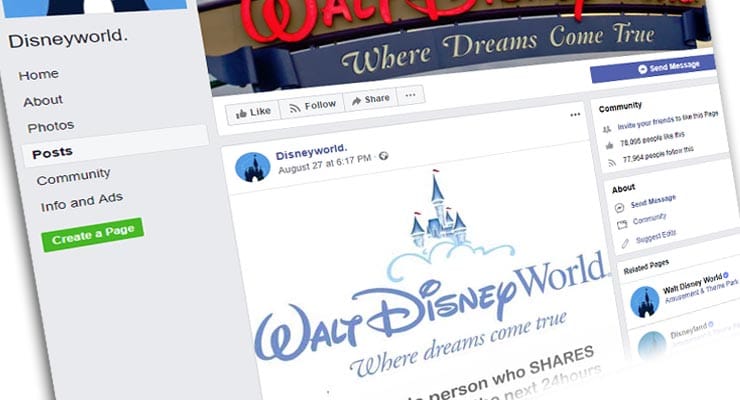Your Ultimate Guide to Identifying Fake Facebook Competitions
While many legitimate companies turn to Facebook to run their competitions, scammers will also try and get in on the act by setting up fake and sometimes dangerous competitions designed to scam Facebook users.
The crooks set up Facebook pages and publish a fake competition and see who bites.
What are fake Facebook competition posts?
A fake Facebook competition post is any post that offers a prize that doesn’t really exist, and the crooks behind it are attempting to trick a Facebook user into jumping through a series of hoops (such as being asked to like a post or click a link) that will make them vulnerable to being scammed in some way.
An example of a fake Facebook competition pretending to be from First Choice is below.
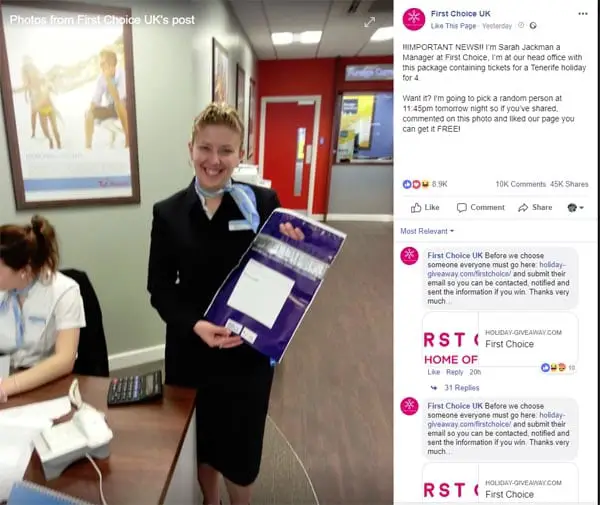
Like, share and click
Scam competitions on Facebook are likely going to ask the users to do two things.
1. Engage with the post, such as like, share and comment.
2. Click a link to claim or register for your prize. Sometimes this link is in the post itself, or sometimes posted by the page in the comments section.
Step one (above) helps the fake competition circulate across Facebook, as users unwittingly spread the post to their friends. Step two is designed to lure Facebook users to spammy, data-harvesting websites.
Sponsored Content. Continued below...
How do you get scammed with a fake Facebook competition?
There are two main approaches that a crook can use to scam a Facebook user with a fake competition.
Firstly, and perhaps most commonly, the fake competition post will direct a Facebook user to a spammy data-harvesting website in order to “claim your prize” or to “register”. Take the below example, which claims you can win a ‘log home’ for sharing, liking and commenting, and also asks the Facebook user to click a link to “register” (in the comments.)
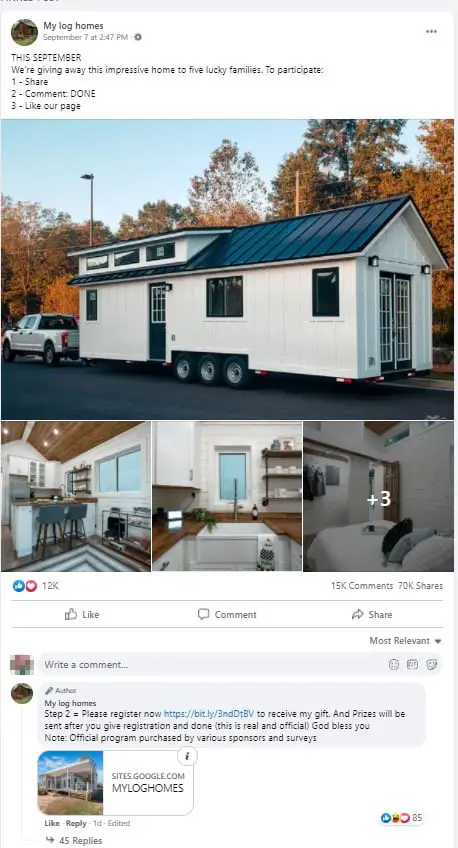
These links direct users to websites that harvest their personal information in the form of surveys and questionnaires, and this information is then sold on to third party marketing companies which then spam the user. Such sites have also been linked with unwittingly entering visitors into subscriptions, as well as identity theft.
Secondly, the Facebook user could be contacted by the crooks and told they have won the competition, but first they need to pay a fee in order to receive their prize. This is known as advance fee fraud – the scam where a victim is told they must pay a small amount of money to receive a comparatively larger pay-out. This is the same scam as the classic “Nigerian prince” email scam.
Sponsored Content. Continued below...
Examples of fake Facebook competitions
The scammers will create Facebook pages to post the fake competition post. These can be generic Facebook pages, as per the example below which claims you can win a trip to Lapland, posted by a page with the name Christmas Trip Lapland.
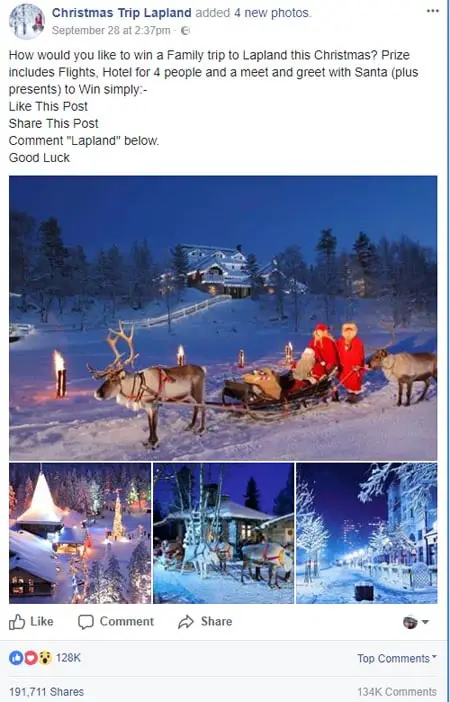
Or the scammers will try and mimic a legitimate and well-known brand, as per the example below which claims to be from Center Parcs.
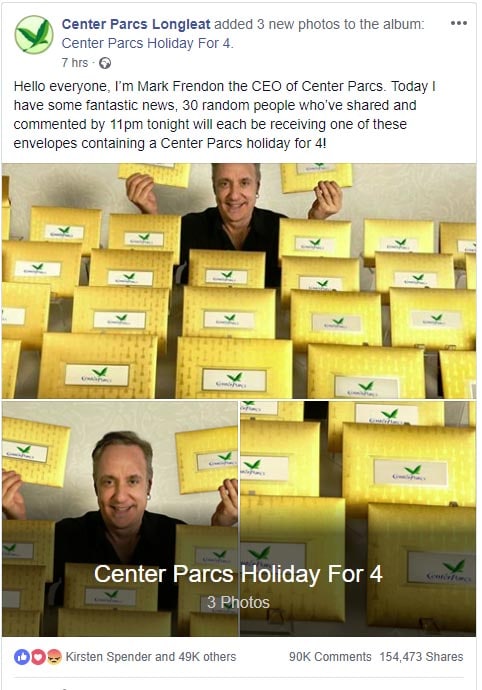
Pages that have generic names and pages that pretend to be from well-known brands are both popular with cyber-crooks, so be on the lookout for either. Below is some advice on how to spot these scams.
Sponsored Content. Continued below...
Avoiding fake Facebook competitions
- Never complete surveys or “rewards programs” to register for a competition. If a Facebook post asks you to click a link to register for a competition, and the site you’re directed to seems more concerned with getting as much personal information from you as possible, it’s a scam.
- Never pay to get a prize. You should never pay any money to receive a prize. If you are asked to send money, then it’s going to be a scam.
- Watch out for expensive prizes. Unless the competition comes from a verified blue-ticked Facebook page belonging to a known brand, any competition offering expensive prizes (like a holiday, an RV, a mobile home, or an expensive phone or car) is almost certainly going to be fake.
- Is the Facebook page verified? If the page posting the competition is a well-known brand like Center Parcs, does it have the blue verification tick that Facebook gives the official pages of a brand? If not, it’s not a genuine page.
- When was the Facebook page created? If the page doesn’t claim to be a brand and it is not clear who is behind it, then check when the page was created using Facebook’s Transparency Tool. If the page is new, and only posts about competitions, then it is probably going to be a fake page.
For some further reading, we have an article on two real-life cases where Facebook users were scammed by these fake competitions, highlighting that you should stay way clear of them. Read it here.
Also read this follow-up article about why you should never enter Facebook competitions “just in case” they’re genuine. Always be sure first.
Continued below...
Thanks for reading, we hope this article helped, but before you leave us for greener pastures, please help us out.
We're hoping to be totally ad-free by 2025 - after all, no one likes online adverts, and all they do is get in the way and slow everything down. But of course we still have fees and costs to pay, so please, please consider becoming a Facebook supporter! It costs only 0.99p (~$1.30) a month (you can stop at any time) and ensures we can still keep posting Cybersecurity themed content to help keep our communities safe and scam-free. You can subscribe here
Remember, we're active on social media - so follow us on Facebook, Bluesky, Instagram and X
